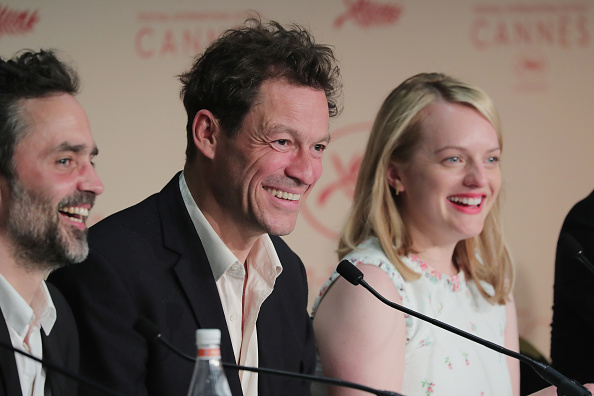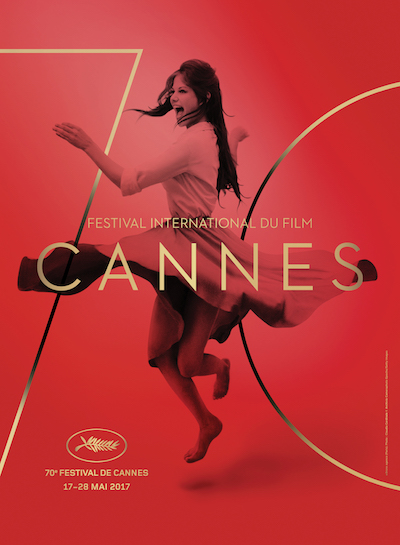The Square: Press conference with Ruben Östlund, Claes Bang, Dominic West and Elisabeth Moss

After 2014’s Force Majeure Ruben Östlund has followed up with The Square, showing in competition at this year’s Cannes. The square of the title is a place without rules and absolute freedom. Östlund’s film, in turn, is a grand, multilayered satire of modern art and its values.
Östlund explained that “the ‘white cube’ is a term in contemporary art. It makes their art even more trivial. We are trying to attack this world. We need to question this convention. Are we accepting contemporary art out of ritual?”.
He did, however, espouse the primordial purity of the square. “The values of the square are very old and started in the beginning of civilisation. You want to step out of the game. You get tired with these political debates where the left and right sides throw shit at each other. It’s so connected with power. The square shouldn’t be religious or political in any way.”
One of the most extraordinary scenes in the film involves a monkey. Östlund explained his rationale for its inclusion and defended accusations that the primate overacted: “Anything can happen when a monkey appears in an apartment. I love monkeys, and I think people like looking at monkeys. Human beings have always been interested in monkeys. Everything should have a monkey. He was a beautiful French monkey who was very friendly. We shot it in one day in Berlin.”
Such scenes contribute to some of the startling imagery throughout the picture. Östlund continued, “We are working with a visual medium, and the images should mean something and the image should create thoughts like paintings. The scene with the trash I’m really happy with. It steps up the surreal element of the film.”
Of the lead character Christian, played by Claes Bang, the director stated that he saw some of himself in the man: “Christian is a primate who is trying to deal with life. This person behaves like this because he is a human being who is in his position. The set up around him makes it possible for him to do these things.”
Bang described the working experience with Östlund, claiming that “70 takes was probably the average. He allows you as an actor so much space, to bring so much of your own into it… Östlund said on one of my character’s speeches – and this is take 95 – ‘Now, none of that shitty television acting that you’re doing, we’re going to do it for real.’ That was hard… “You’re an instrument and he plays the instrument through you.”
Bang also elaborated on the politics of the film. “It is quite political. It comments on the hypocrisy of the western way of life and the blindness we all have. We think we’re quite decent, we pay our taxes, but then there are some things where we shut our eyes.”
Bang’s co-star Elisabeth Moss, also appearing in Jane Campion’s second series of Top of the Lake, which is premiering at Cannes, spoke of her unique sex scenes in the film. “You feel as comfortable as you can. Probably the hardest thing was not laughing as I was weirdly gyrating on top of Frederick.”
Bangs spoke of his own sex scenes in similarly bewildered terms. “You don’t normally get people looking straight into the camera in conventional films, only in porn films. Not that I have much experience of those.”
Terry Notary, previously known for his motion capture work in films such as Avatar spoke warmly of Östlund’s method of direction. “One of the intriguing things for me was that he likes to create a space that is safe and you’re free to make mistakes. Once you have that freedom, you can give yourself and disappear into it. I was putting colours out for him to play with.”
Dominic West plays the pretentious, self-absorbed artist Gijoni. The actor described the inspiration for his performance: “I have met someone like my character. I think those guys are quite scary – invincibly knowledgeable artists that can’t be disputed because they’re talking about something that needs no empirical evidence. They’re also so powerful and so rich.”
West was coy on the exact influence. “We had a few people in mind. There were interviews with great international artists, which we looked at in great detail.”
Joseph Owen
Photo: Neilson Barnard / Getty Images
Read our review of The Square here.
Read more of our reviews and interviews from the festival here.
For further information about Cannes Film Festival 2017 visit here.
























Facebook
Twitter
Instagram
YouTube
RSS